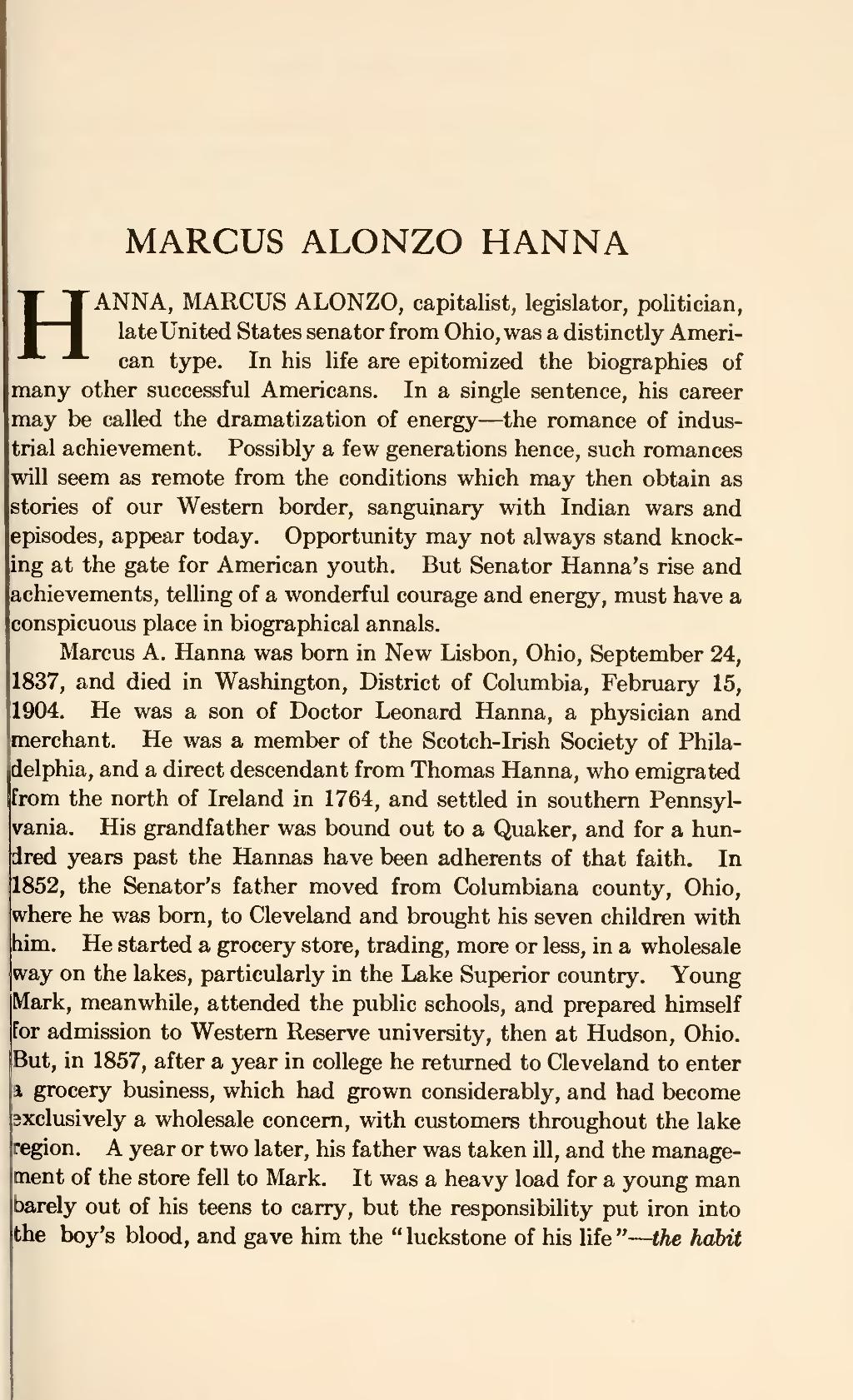MARCUS ALONZO HANNA
HANNA, MARCUS ALONZO, capitalist, legislator, politician, late United States senator from Ohio, was a distinctly American type. In his life are epitomized the biographies of many other successful Americans. In a single sentence, his career may be called the dramatization of energy—the romance of industrial achievement. Possibly a few generations hence, such romances will seem as remote from the conditions which may then obtain as stories of our Western border, sanguinary with Indian wars and episodes, appear today. Opportunity may not always stand knocking at the gate for American youth. But Senator Hanna's rise and achievements, telling of a wonderful courage and energy, must have a conspicuous place in biographical annals.
Marcus A. Hanna was born in New Lisbon, Ohio, September 24, 1837, and died in Washington, District of Columbia, February 15, 1904. He was a son of Doctor Leonard Hanna, a physician and merchant. He was a member of the Scotch-Irish Society of Philadelphia, and a direct descendant from Thomas Hanna, who emigrated from the north of Ireland in 1764, and settled in southern Pennsylvania. His grandfather was bound out to a Quaker, and for a hundred years past the Hannas have been adherents of that faith. In 1852, the Senator's father moved from Columbiana county, Ohio, where he was born, to Cleveland and brought his seven children with him. He started a grocery store, trading, more or less, in a wholesale way on the lakes, particularly in the Lake Superior country. Young Mark, meanwhile, attended the public schools, and prepared himself For admission to Western Reserve university, then at Hudson, Ohio. But, in 1857, after a year in college he returned to Cleveland to enter a grocery business, which had grown considerably, and had become sxclusively a wholesale concern, with customers throughout the lake region. A year or two later, his father was taken ill, and the management of the store fell to Mark. It was a heavy load for a young man barely out of his teens to carry, but the responsibility put iron into the boy's blood, and gave him the "luckstone of his life"—the habit
